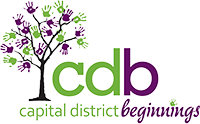Frequently Asked Questions
How can I get my child evaluated?
If your child is between the ages of 3-5, services are provided through the Committee on Preschool
Special Education (CPSE) of the school district in which you live. Contact your school district and
tell them that you are interested in having your preschooler evaluated.
Will I have to pay for the evaluation?
No, the evaluation and CPSE is completed at no cost to
families.
Where will I have to go for the evaluation?
The evaluation may take place at your home or the early childhood setting your child
participates in.
Who will evaluate my child?
A special education teacher, speech/language therapist, motor therapist (physical or
occuaptional), or a school psychologist may evaluate your child, depending on your concerns about
your child and the age of your child.
Will I be able to stay with my child during the evaluation?
Yes! As a parent you know the most about your child. You have important information to
share with the evaluators. We also want your child to feel safe and
comfortable.
What will occur during the evaluation?
The evaluators will interview you about your child's skills in several areas of development
(cognitive, motor, social, self-help, and speech/language) as well as assess your child through play
activities.
If my child needs special services how will I find someone to provide the service(s)?
In CPSE, you work with your local school district chairperson and as a
part of the CPSE team to fulfill your child’s IEP.
Where will the services be provided?
You and CPSE will decide this. They may occur at home,
preschool, the babysitter's, and/or daycare/preschool classroom.
Will the service providers give me suggestions about how I can help my child?
Yes. Please let them know that you're interested, and they will give you
ideas.
What if I work during the day and the services are provided at daycare?
How will I know what is happening with my child?
You and the child's service providers will
set up a system of communication that works for all of you. These may include the following: writing
in a notebook, phone calls, lunchtime meetings, a home visit in the evening or on a parent's day
off.
|

